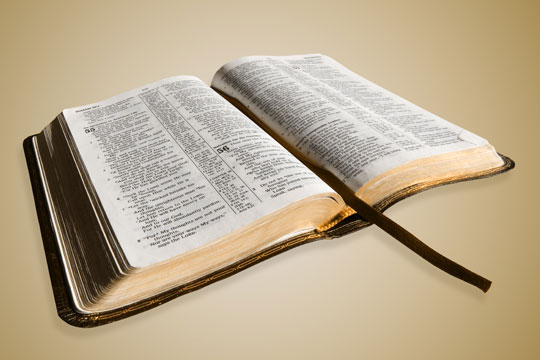
Recently, we conducted one of our informal polls to get a peek into the minds and hearts of catechists. In this particular poll, we asked: Which area of Catholic teaching do you most need to grow in understanding?
With 51% of the vote (as of 9/6/19), Scripture, by far, is the area in which catechists most feel a need to grow in their understanding. This is not surprising. While we Catholics have made great advances in our familiarity with Scripture since the Second Vatican Council, we still have a lot of work to do, especially if we want our catechesis to be truly biblically animated (powered by Scripture), which it should be. With that in mind, permit me to offer some suggestions for deepening your knowledge of the Bible:
- To learn about how the Bible is put together, where and how to find things in the Bible, and how to interpret the Bible as a Catholic, I recommend my book, The Bible Blueprint: A Catholic’s Guide to Understanding and Embracing God’s Word.
- To deepen your understanding of the Old Testament, I recommend Jim Campbell’s The Stories of the Old Testament: A Catholic’s Guide.
- To deepen your understanding of the four Gospels, I recommend this great series by Daniel Harrington, SJ:
- To deepen your knowledge of the chronological story of Jesus, I recommend God with Us: The Story of Jesus as Told by Matthew, Mark, Luke, and John.
This should put you on the right track to deepening your knowledge of Sacred Scripture. Of course, nothing beats actually reading the Bible! However, I don’t necessarily recommend reading it cover to cover. Instead, I suggest you become familiar with the narrative thread of the Bible—the story of our salvation history. The following passages will give you a broad outline of that narrative thread. You can then go back and read other sections of the Bible in any order, knowing how they fit into this narrative thread.
Old Testament
- Genesis
- 12:1–4—Call of Abraham
- 15:1–7—Covenant with Abraham
- Exodus
- 1:8–14—Israel taken into slavery
- 3:4–14—Call of Moses
- 12:1–13—Passover meal
- 14:19–31—Crossing of the Red Sea
- 20:1–17—Ten Commandments
- Numbers
- 10:33–34—Departure from Sinai and desert wandering
- Joshua
- 3:14–17—Crossing the Jordan (entering the Promised Land)
- Judges
- 3:7–11—Period of Judges begins
- 21:25—No kings yet
- 1 Samuel
- 8:1–5—Request for a king
- 16:7–13—David anointed
- 2 Samuel
- 7:8–16—Promise of an enduring kingdom
- 1 Kings
- 6:1—Building of the Temple
- 2 Kings*
- 17:1–6—Fall of the Northern Kingdom to Assyria
- 24:1–17—Fall of the Southern Kingdom to Babylon (beginning of Exile)
- *During this period, Isaiah prophecies about the coming of the Messiah: Isaiah 7:10–14.
- Ezra
- 1:1–4—Return from Exile
- Nehemiah
- 2:17–18—Rebuilding Jerusalem
- 1 Maccabees
- 4:36–40—Jewish independence before Roman occupation
New Testament
- Matthew
- 1:18–25—The birth of Jesus
- Ch. 5–7—Sermon on the Mount
- Mark
- Ch. 1–13—Jesus’ ministry
- Luke
- Ch. 22–23—Passion of Jesus
- John
- Ch. 20—Resurrection of Jesus
- Acts of the Apostles
- 1:6–12—Ascension of Jesus
- 2:1–4—Coming of the Holy Spirit
- 9:1–9—Conversion of Saul/Paul
- 28:11–16—Paul arrives in Rome
- 1 Peter
- 5:12–14—Peter in Rome


![Call of Abraham - by the Providence Lithograph Company (http://thebiblerevival.com/clipart/1907/gen12.jpg) [Public domain], via Wikimedia Commons](https://catechistsjourney.loyolapress.com/wp-content/uploads/2017/09/call-of-abraham.jpg)

I’m disappointed. These are not suggestions for deepening faith but recommendations for purchasing books.
I’m sorry you’re disappointed, Monica. Books are an important way of deepening faith and have been since the earliest times in the Church. When the early church sought to strengthen peoples’ faith, they wrote the books of the New Testament. Not long thereafter, they wrote a book called the Didache, the purpose of which was to teach the faith to others. The conversion of St. Ignatius of Loyola was inspired by books he read about the lives of the saints while he was convalescing from a wound he suffered in battle. In addition to traveling the country and speaking to people about how to grow in faith, I also write books that I hope will help others to grow in faith. Likewise, I read books to grow in faith and then recommend them to others. Finally, selling books is how we (Loyola Press), as a not-for-profit ministry, support our ministry which includes this blog which, for over 10 years, has reached countless thousands of catechists while including no advertisements. My hope is that you and others may grow in your knowledge of Scripture in whatever way you can, including books!